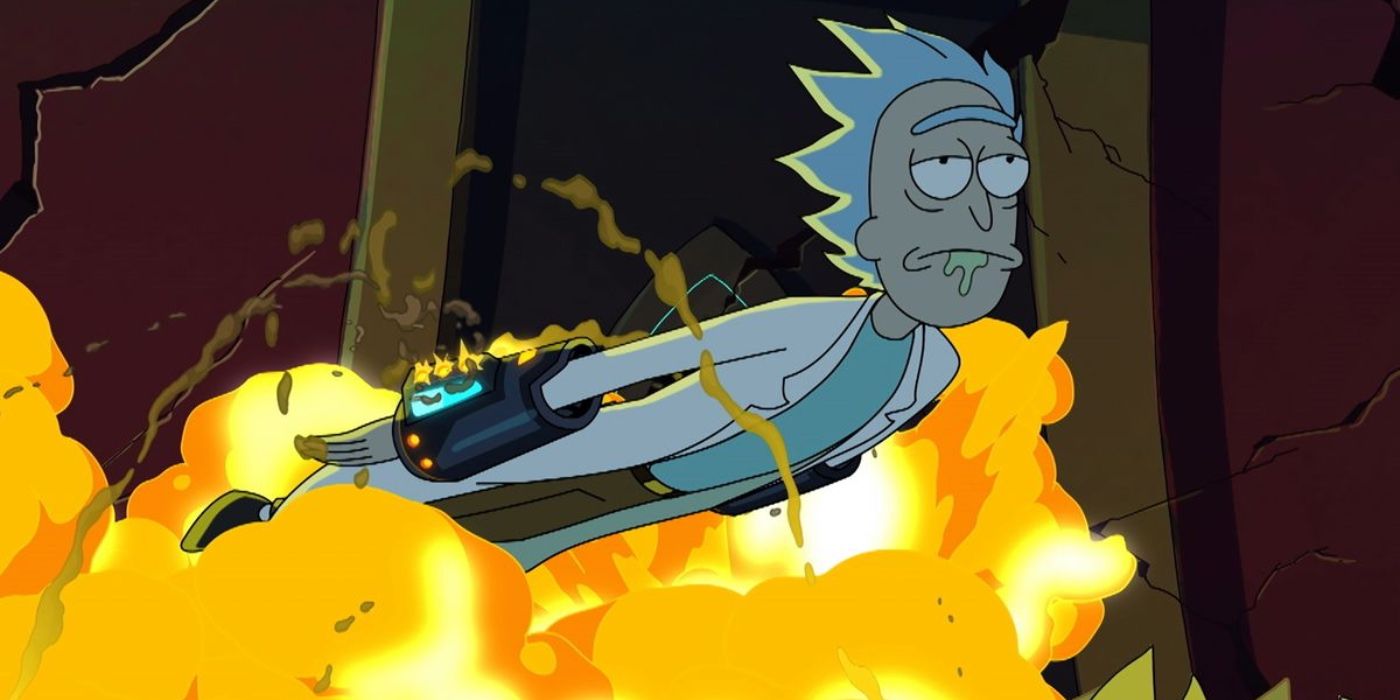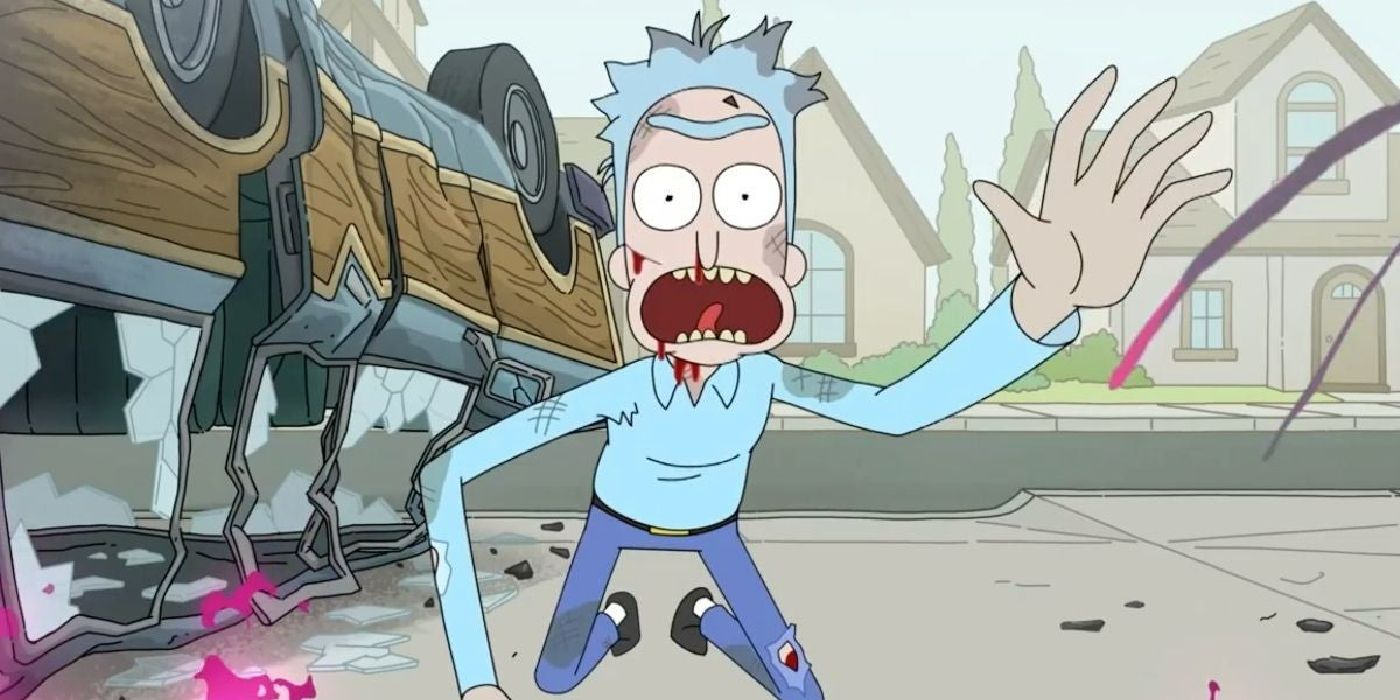
Warning! Spoilers ahead for Rick and Morty, season 5, episode 10, "Rickmurai Jack."
In the Rick and Morty season 5 finale, the reveal of Rick's backstory more than justifies his awful behavior and negative outlook towards nearly everything. Concrete details about C-137 Rick's tragic origin and backstory have finally been confirmed (despite Rick's best efforts), and his grandson Morty has finally learned the truth about why his grandfather is the way that he is, traveling the multiverse and its infinite possibilities with little care for anyone or anything, as the one thing that mattered to him most was ripped away from him.
In "Rickmurai Jack," the season 5 finale sees Rick and Morty facing off with Evil Morty, the new president of the Citadel of Ricks who has plans to escape the Central Finite Curve, the collection of realities where Rick is the smartest being in each dimension. However, Morty demands clarity from Rick in the midst of the conflict as they've both agreed to turn a new leaf and start seeing each other as equals. As a result, Rick finally relents, uploading a brain scan of his full origins and backstory into Morty's head, confirming that his wife and daughter Beth were indeed killed by another Rick despite C-137 Rick's claims in season 3 that it was a false memory. However, the tragedy doesn't end with their deaths, as losing them wasn't the only thing that made Rick so cynical and apathetic towards nearly everything in the multiverse.
As the rest of the backstory scene reveals, Rick would build his own portal gun, searching for the Rick that killed his family across countless dimensions, killing hundreds (if not thousands) of Ricks throughout his desperate travels. However, it soon became apparent that he was never going to find the Rick who took his wife and daughter. As a result, Rick started to let himself go, detaching himself from his friends such as Birdperson and Squanchy while still killing the Ricks that were being sent to kill him. Eventually, he killed so many Ricks that a treaty was created along with the Citadel and Central Finite Curve, though Rick never really cared for either, eventually crashing his ship in the dimension where his adult daughter was still alive, beginning his adventures with Morty. When all is said and done, the trauma and damage caused by Rick's fruitless mission very much justify his behavior seen throughout the entire series: not only was the only thing that mattered taken from him but avenging their deaths became an impossibility.

When faced with a struggle so tragic, why should Rick care about anything or anyone? While it seems as though Rick's time with Morty has gradually helped him improve and become better – as the finale suggests by its end – it's no wonder Rick has acted the way he has every season. With his portal gun, Rick can go to any dimension he wants, but there's nowhere he can go where he can get his wife and daughter back. Combined with his inability to find and kill the Rick responsible, it explains why he's been driven to the point of antipathy.
It will be interesting to see where Rick and Morty's storyline goes from here, especially now that so much continuity has been injected into the narrative that has typically been avoided by Rick's intentional design (as well as the design of the series' writers). It seems as though Rick now has no choice but to find a way to grow past his trauma, and perhaps that begins with his decision to treat Morty as more of a partner to be relied upon by the finale's end. Likewise, while Rick's tragic origin and backstory absolutely justify his past behavior, it will be interesting to see if it changes when and if Rick starts to care on a deeper level again in future seasons of Rick and Morty.
More: Rick & Morty: What To Expect From Season 6
from ScreenRant - Feed https://ift.tt/3A2wmjz


0 Comments